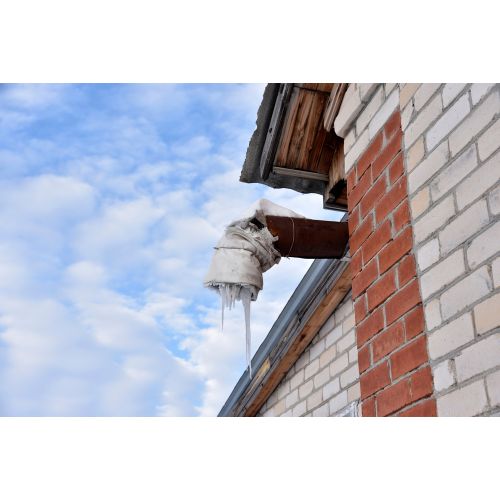How To Stop Your Pipes Freezing In The Winter
Working your way through your winter home maintenance checklist? Here’s everything you need to know about frozen pipes and how you can prevent them this season.
Winter is well and truly upon us.
And with temperatures already 5-6◦C below average for this time of year, there’s no way we can deny it.
The freezing cold weather can wreak havoc on your home, from causing problems with damp and mould to an array of plumbing problems like frozen pipes.
Frozen pipes are one of the most common winter plumbing problems, and can be a nightmare (an expensive one, too!) to repair.
Luckily, though, there are some things you can do to avoid them – let’s delve into some of them in this article and ways you can solve the problem without breaking the bank.
Pre-winter prep
Prepping your outdoor pipes before the cold weather arrives is key if you want to prevent frozen pipes.
The best thing you can do for your pipes is to have them insulated, and you can purchase pipe lagging and tank jackets from most DIY shops and fit them yourself for free.
Once you’ve got the supplies you need, focus on the following areas:
- Outdoor pipes – this includes everything from heating drainpipes to overflow pipes. Remember to cover bends valves and fittings in addition to the straight lengths of the pipes.
- Pipes in colder areas of your home – don’t forget about pipes in garages, basements and unused loft spaces.
- Water tanks – despite being one of the main problem areas, water tanks are often forgotten about. If neglected during a cold snap, they can cause frozen pipes to burst, so be sure to insulate them alongside any pipes.
Preventing frozen pipes during winter
Other than insulating your pipes, there are many things you can do to ensure your pipes don’t freeze up in the winter, including:
- Encourage warm air flow and keep the cold out – if you have pipes and water tanks in your garage, be sure to keep the door closed to keep the cold air out. For pipes or tanks inside your home, keep cupboard doors and loft hatches open to allow warmer air to circulate around the plumbing.
- Fix leaky taps – you might have heard that leaving your taps dripping when it’s icy outside can stop your pipes from freezing up. But this is nothing more than a myth, and doing so can actually cause your drains to freeze and water to back up to your sink and cause an overflow. Make sure you turn your taps off properly after each use, and if you notice a leak, get it fixed as soon as possible.
- Know where your stopcock is – It’s vital that you know how to stop the flow of water if your pipes freeze up, so make sure you locate your stopcock and clear the area around it for quick, easy access.
- Turn your water supply off if you’re going away – if you’re jetting off for a bit of winter sun, make sure to turn your water supply off before you leave, and empty your pipes of water to prevent them from freezing over in the case of a cold snap.
How to tell if your pipes are frozen
There are several telltale signs that your pipes have frozen up.
The biggest red flag is your central heating system making a gurgling noise when it’s turned on, or your boiler not switching on at all.
You may also notice a trickle of water coming from your taps when they’re on, or no water coming from them, sinks, baths and showers clogging and toilets flushing slower than usual.
What to do about frozen pipes
If you notice any of the above red flags, especially in winter, it’s safe to assume that your pipes are frozen.
You’ll first need to locate the affected pipe by turning on all the taps in your home and looking out for any changes in water flow. Then, once you’ve narrowed down your search, inspect the culprit to see if it’s frosted over to confirm you’ve found the right pipe and pour hot (not boiling!) water over the pipe slowly, placing a hot water bottle over it to melt away any ice and get the water flowing again.
Need more winter pipe maintenance tips?
Winter can be tough on your pipes, but we’re here to help here at Total Pipeline Systems.
Whether you need more maintenance tips, or it’s time to replace your old pipes, we’d be more than happy to help.
Browse our collection of pipes and accessories online today, or get in touch with our team for expert help and advice!

